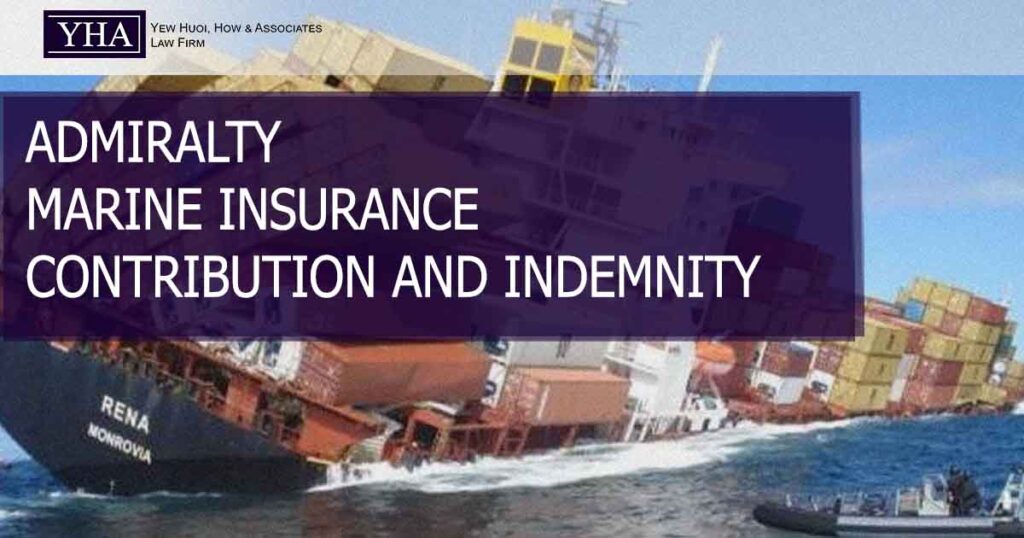ABC insurance company rejected B’s claim for cargo damage. Unhappy with the rejection, B sued ABC insurance company and the ship owner who carries its goods for negligence.
Can ABC insurance company claim contribution and indemnity against the ship owner?
- Generally, the right of contribution and indemnity of the insurer arises from its right of subrogation under the law of insurance.
- In the context of marine insurance, Section 79 of the United Kingdom Marine Insurance Act 1906 (“UK Marine Insurance Act 1906”) provides as follows:
“(1) Where the insurer pays for a total loss, either of the whole, or in the case of goods of any apportionable part, of the subject-matter insured, he thereupon becomes entitled to take over the interest of the assured in whatever may remain of the subject-matter so paid for, and he is thereby subrogated to all the rights and remedies of the assured in and in respect of that subject-matter as from the time of the casualty causing the loss.”
How is the UK Marine Insurance Act 1906 applicable in Malaysia?
- This is because Section 5(1) of the Malaysian Civil Law Act 1956 provides that the law on marine insurance in Malaysia is the same as would be administered in England.
Can ABC insurance company claim contribution and indemnity before paying the B’s loss?
- There are 2 conflicting decisions of the High Court. In Lim Sze Way v Allianz General Insurance Company (M) Bhd (Supreme Power Auto Sdn Bhd & Ors, 3rd Parties) [2020] MLJU 2089, the High Court held that unless the insurance company has
has accepted the insurance claim and subrogated the right of the insured, the insurance company has no cause of action against the 3rd party tortfeasor. In the context of insurance company against 3rd party, the insurance company cannot maintain any other causes of action against the tortfeasor other than by way of subrogation of the right of the insured.
On the contrary, the Sabah High Court had in Sing Yung Steel Sdn Bhd v MSIG Insurance (Malaysia) Bhd & Ors [2021] MLJU 3046 held that contribution and indemnity can arise in various situation independent of contract. The issue of subrogation is a matter that is to be decided at trial.
The decision in Sing Yung Steel is certainly driven by convenience. This is because if the court eventually decides the insurance company is required to pay for the losses of the insured, the right of subrogation would have arisen. It follows that the insurer is then entitled to seek contribution and indemnity against 3rd party tortfeasor who is liable to the loss in the first place. All these can be dealt with together in the main suit.
Both decisions have its pros and cons. Keeping in mind, a High Court judge is not bound by another High Court judge’s decision (See Sundralingam v Ramanathan Chettiar [1967] 2 MLJ 211 (FC))

